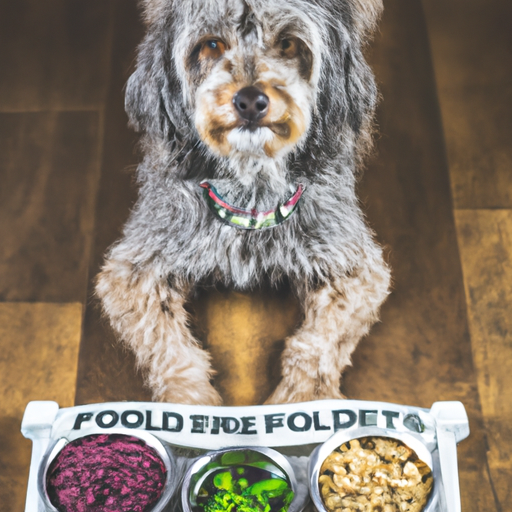Dogs are not just pets; they are family. As a caregiver, you want to provide them with the best possible care, and a large part of that care involves their diet. This guide will help you understand the complexities of a dog’s diet and how you can provide the best nutrition for your furry friend.
H2: Understanding Your Dog’s Dietary Needs
Every dog is unique – from their breed to their age and lifestyle. These factors deeply influence their dietary needs.
- Puppies, for instance, require more protein and fats for their growth and development.
- Adult dogs need a balanced diet to maintain their health and energy levels.
- Older dogs, on the other hand, may need fewer calories but more fiber and certain nutrients.
A vet can help you understand your dog’s specific needs better.
H2: Key Components of a Dog’s Diet
A well-rounded dog diet should comprise the following:
- Proteins: These are the building blocks of a dog’s body. They can come from sources like chicken, beef, fish, and legumes.
- Carbohydrates: These provide energy. Good sources include sweet potatoes, brown rice, and oats.
- Fats: They are essential for skin and coat health. They can come from fish oil, olive oil, and flaxseed.
- Fiber: It aids digestion. Sources include vegetables, fruits, and whole grains.
- Vitamins and minerals: They are vital for overall health and can be found in a variety of foods.
| Food Group | Sources |
|---|---|
| Proteins | Chicken, Beef, Fish, Legumes |
| Carbohydrates | Sweet Potatoes, Brown Rice, Oats |
| Fats | Fish Oil, Olive Oil, Flaxseed |
| Fiber | Vegetables, Fruits, Whole Grains |
| Vitamins and Minerals | Variety of Foods |
H2: Choosing the Right Food
When it comes to choosing the right food for your dog, you have several options.
- Commercial Dog Food: These are formulated to provide complete and balanced nutrition. Make sure to choose a product that meets the standards set by the Association of American Feed Control Officials (AAFCO).
- Homemade Diet: If you prefer a more personal approach, you can prepare your dog’s meals at home. However, it is crucial to consult with a vet or a pet nutrition expert to ensure the diet is balanced and complete.
- Raw Diet: Some people prefer a raw diet for their dogs. This diet typically includes raw meat, bones, fruits, and vegetables. It is essential to research thoroughly and consult your vet before switching to a raw diet.
H2: Special Dietary Considerations
Sometimes, dogs may have specific dietary needs due to health conditions, allergies, or other reasons. Always consult your vet when making significant changes to your dog’s diet. They can guide you on the best diet plan for your pet’s unique needs.
FAQs
Q: Can I feed my dog a vegetarian diet?
A: Dogs can technically survive on a carefully planned vegetarian diet, but this is generally not recommended without expert guidance.
Q: How often should I feed my dog?
A: Most adult dogs do well with one or two meals a day, while puppies usually need three to four meals.
Q: Are there foods that dogs should avoid?
A: Yes. Certain foods like chocolate, onions, grapes, and alcohol can be toxic to dogs.
Q: What should I do if my dog has food allergies?
A: If you suspect your dog has food allergies, consult your vet. They can help identify the cause and suggest appropriate dietary changes.
Remember, every dog is unique and what works for one might not work for another. Pay close attention to your dog’s health and behavior, and consult your vet regularly to ensure that your furry friend is getting the best diet possible.



